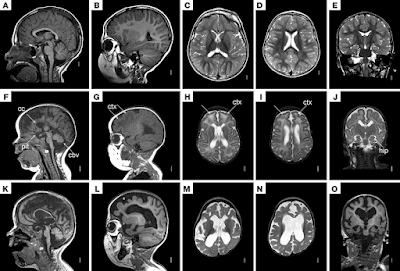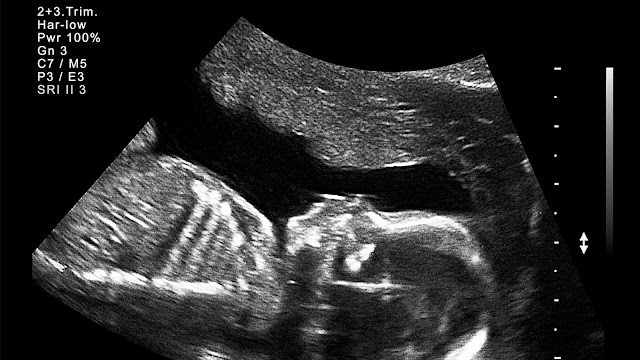In recent years, diet and nutrition have become increasingly popular topics of discussion, with a significant focus on the debate between plant-based and animal-based diets. Each dietary approach has its advocates and critics, with proponents touting the benefits and drawbacks based on health, ethical, and environmental concerns. In this comprehensive comparison, we will delve into the nutritional aspects, health implications, environmental impact, ethical considerations, and practicalities of both plant-based and animal-based diets. This guide aims to help you make an informed decision about which dietary approach might be best for you.
1. Nutritional Profile
Plant-Based Diet:
A plant-based diet primarily consists of fruits, vegetables, grains, legumes, nuts, and seeds. It is naturally rich in fiber, vitamins, and minerals while being low in saturated fats and cholesterol. The high fiber content is particularly beneficial for digestive health and can aid in preventing chronic diseases such as heart disease and type 2 diabetes. Plant-based diets are also rich in antioxidants and phytochemicals, which have anti-inflammatory properties and can protect against cellular damage.
However, one potential concern with a strictly plant-based diet is the risk of certain nutrient deficiencies. Vitamin B12, iron, calcium, omega-3 fatty acids, and vitamin D are nutrients that are primarily found in animal products and may require careful planning or supplementation to ensure adequate intake.
Animal-Based Diet:
Animal-based diets include meat, fish, eggs, and dairy products. These foods are rich sources of complete proteins, providing all the essential amino acids needed for muscle growth and repair. Additionally, they are excellent sources of nutrients like vitamin B12, iron (in the heme form, which is more easily absorbed by the body), calcium, and omega-3 fatty acids (especially from fish).
However, animal-based diets can be high in saturated fats and cholesterol, which are associated with an increased risk of heart disease. Overconsumption of red and processed meats has also been linked to certain types of cancer, particularly colorectal cancer.
2. Health Implications
Plant-Based Diet:
Numerous studies have shown that plant-based diets are associated with a lower risk of chronic diseases, including heart disease, hypertension, type 2 diabetes, and certain cancers. The high fiber content helps to regulate blood sugar levels and promote healthy cholesterol levels. Moreover, the anti-inflammatory and antioxidant properties of plant foods contribute to overall health and longevity.
Weight management is another area where plant-based diets excel. Plant-based eaters tend to have lower body mass indices (BMIs) and lower rates of obesity compared to those who consume animal products. This is partly due to the lower calorie density of plant foods, which allows individuals to consume larger portions without excessive calorie intake.
On the downside, individuals following a plant-based diet need to be mindful of their protein intake. While it is possible to obtain sufficient protein from plant sources, it often requires combining different plant foods to ensure a complete amino acid profile. Additionally, the potential for nutrient deficiencies, as mentioned earlier, must be addressed through careful dietary planning or supplementation.
Animal-Based Diet:
Animal-based diets provide a more straightforward approach to meeting nutritional needs, particularly in terms of protein and certain vitamins and minerals. For athletes or individuals with higher protein requirements, animal products can offer a convenient and effective way to meet their dietary goals.
However, the health implications of animal-based diets are mixed. While they can support muscle growth and recovery, they are also associated with higher risks of chronic diseases. High intake of red and processed meats has been linked to an increased risk of heart disease, stroke, and certain cancers. Moreover, the high saturated fat content in many animal products can lead to elevated cholesterol levels and an increased risk of cardiovascular diseases.
3. Environmental Impact
Plant-Based Diet:
The environmental benefits of a plant-based diet are well-documented. Plant-based diets tend to have a significantly lower carbon footprint compared to animal-based diets. The production of plant foods generally requires less land, water, and energy, and it produces fewer greenhouse gas emissions. For example, producing a kilogram of vegetables or grains requires far less water and energy compared to producing a kilogram of beef or pork.
The reduced environmental impact of plant-based diets is particularly relevant in the context of global climate change and sustainability. As the global population continues to grow, shifting towards plant-based diets could play a crucial role in reducing the strain on natural resources and mitigating the effects of climate change.
Animal-Based Diet:
Animal agriculture is one of the leading contributors to environmental degradation. It is responsible for a significant portion of greenhouse gas emissions, particularly methane, which is produced by ruminant animals like cows. The production of animal products also requires large amounts of land and water, leading to deforestation, habitat destruction, and water scarcity in some regions.
Moreover, the environmental impact of animal-based diets extends beyond just greenhouse gas emissions. The use of antibiotics and hormones in animal farming can contribute to pollution and the development of antibiotic-resistant bacteria, posing a threat to public health.
4. Ethical Considerations
Plant-Based Diet:
One of the primary ethical arguments for a plant-based diet is the avoidance of animal suffering. Many people choose plant-based diets because they do not want to contribute to the exploitation and killing of animals for food. This ethical stance is often associated with concerns about the conditions in which animals are raised, including factory farming practices that involve overcrowding, confinement, and inhumane treatment.
In addition to animal welfare, some people adopt plant-based diets out of concern for global food security. By consuming plant foods directly rather than feeding them to animals, more food is available to feed the growing human population.
Animal-Based Diet:
Those who advocate for animal-based diets often argue that humans have evolved to eat meat and that it plays a crucial role in our development and survival. Some also argue that animals can be raised ethically and sustainably, with practices that prioritize animal welfare, such as free-range farming, organic farming, and grass-fed livestock.
However, the ethical debate surrounding animal-based diets is complex and multifaceted. Even with ethical farming practices, the killing of animals for food remains a point of contention for many individuals who prioritize animal rights.
5. Practicality and Accessibility
Plant-Based Diet:
The practicality of a plant-based diet largely depends on an individual's access to a variety of plant foods and their ability to plan balanced meals. While plant-based diets can be more affordable than animal-based diets, particularly when relying on staples like grains, beans, and vegetables, they can also become expensive if relying on specialty products like meat substitutes, organic produce, and superfoods.
In terms of accessibility, some regions may have limited availability of plant-based options, particularly in areas where animal products are the cultural norm. However, with the growing popularity of plant-based eating, more options are becoming available in grocery stores and restaurants worldwide.
Animal-Based Diet:
Animal-based diets are generally more straightforward in terms of meal planning, particularly for those who are used to traditional diets that include meat, dairy, and eggs. These diets can also be more convenient, as animal products are widely available and familiar to most people.
However, animal-based diets can be more expensive, especially when choosing high-quality or ethically sourced products like grass-fed beef, organic dairy, and wild-caught fish. Additionally, the health risks associated with high meat consumption may necessitate more careful meal planning to avoid potential negative health outcomes.
Conclusion
In the debate between plant-based and animal-based diets, there is no one-size-fits-all answer. Both diets have their pros and cons, and the best choice depends on individual health needs, ethical beliefs, environmental concerns, and personal preferences.
A plant-based diet offers numerous health benefits, a lower environmental impact, and aligns with ethical considerations for those concerned about animal welfare. However, it requires careful planning to avoid nutrient deficiencies and may be less accessible in some areas.
An animal-based diet provides a straightforward approach to meeting nutritional needs, particularly for those with higher protein requirements, but it comes with potential health risks and a higher environmental impact.
Ultimately, many people find a balanced approach that incorporates elements of both diets—emphasizing whole, plant-based foods while including ethically sourced animal products in moderation—can offer the best of both worlds. Whether you choose to follow a plant-based, animal-based, or a combination of both, the key is to prioritize whole, minimally processed foods that support overall health and well-being.

.jpeg)

.jpeg)
.jpeg)




.jpeg)
.jpeg)

0 Comments